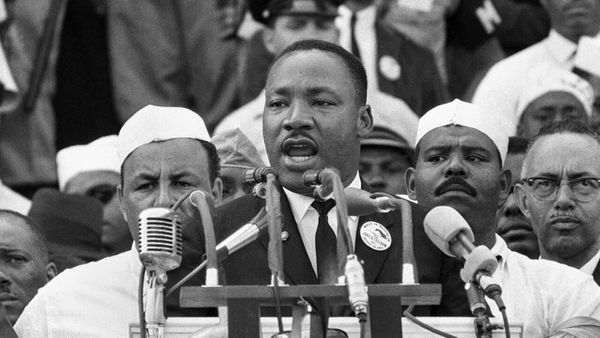
A convicted rapist who was previously allowed to have unsupervised time with his child has been stripped of his parental responsibility.
Kristoffer White, who has been described as a “danger to women and children”, failed to turn up to court last week for a hearing, attended by the Bureau of Investigative Journalism (TBIJ), to determine the involvement he could have in his daughter’s life.
White has a criminal conviction for the rape of a stranger, and the family court found he had also raped the child’s mother on three occasions.
Judge Kambiz Moradifar was asked by the mother to revoke White’s parental responsibility and issue a barring order to limit his ability to bring the case back to court. White’s ex-partner also asked the court to extend a non-molestation order – the equivalent of a restraining order – until her daughter’s 16th birthday.
Charlotte Proudman, the mother’s barrister, told the court: “The father inflicted devastating emotional harm on the whole family, including the child, which he continued to deny. It’s hard to see how there can be any positive factors that justify the father being capable of exercising his parental rights.”
Parental responsibility – which mothers automatically have and fathers have if they are married to the mother or named on the birth certificate – can only be removed by an order from the family court. Stripping someone of this responsibility is seen as one of the court’s more severe powers.
White being able to liaise with the mother about the child’s medical records, school reports or other welfare matters would cause her emotional trauma as a victim of rape, Proudman argued.
Despite the serious findings made against him, including rape, by District Judge Sophie Harrison, White had previously been granted unsupervised access to his daughter after a recommendation by the Children and Family Court Advisory and Support Service (Cafcass).
Harrison’s order permitting contact, made in February, was overturned after a successful appeal by the mother. White’s contact with the girl was suspended pending the court’s final orders, and the matter was referred to Moradifar.
After the appeal, the TBIJ and the freelance journalist Suzanne Martin successfully applied to the court to name White. A new children’s guardian from Cafcass advised the court at that point that White was “a danger to women and children” and “unsafe to have any involvement in [the child]’s or her family’s life”.
In an interview, the mother, who had represented herself in court up until February’s hearing, said it was concerning that two Cafcass employees came to polar opposite conclusions.
Cafcass, which earlier this year received an “outstanding” rating from Ofsted, declined to comment on the case after the final hearing. However, Moradifar said that senior Cafcass officers had been in touch with the court to request previous judgments from the case to see if there “might be some learning”.
At the final hearing, the children’s guardian supported all the mother’s applications, including the termination of White’s parental rights.
In documents submitted to the court, the guardian’s barrister, Craig Jeakings, wrote: “Mr White is a risk in that he has a criminal conviction for rape, which he continues to deny. He also continues to deny the proven findings in the family court, which include rape on three occasions, domestic abuse and coercive control.”
White served four years of a nine-year sentence for raping a teenager in 2008. According to press reports, White dragged the 19-year-old woman into a garden, threatened to kill her and raped her twice. He was identified through his DNA two years after the attack and convicted in 2011.
At Wednesday’s final hearing Moradifar approved all of the mother’s applications, saying they were “squarely within [the child’s] welfare interests”.
The judge said White, who also failed to show up to a hearing in August, had “for all intents and purposes disengaged” with the proceedings. He added: “I’m satisfied that all reasonable and practical efforts have been made to engage him in these proceedings, and he has chosen not to pursue his application for contact with [his daughter].
“ I dismiss his application for contact and order that there should be no contact between him and [the child].” Moradifar said he would lay out the reasoning for his ruling in a written judgment to be published at a later date.
Speaking after the ruling, the mother told TBIJ she felt bittersweet relief. “My daughter is better off with this outcome, but it’s sad that this is my child’s life.
“I am not naive to the fact that this outcome would never have happened if I had remained a litigant in person [someone representing themselves without a lawyer]. If I hadn’t had legal representation, it could have been a very different result for my daughter.”
She added: “I really hope my case can help other families in similar circumstances and shine a light on the family court system and Cafcass. We really need professionals to be adequately trained in domestic abuse and its impact on victims.”
A Ministry of Justice spokesperson said: “Children’s safety is absolutely paramount, and judges have extensive powers to block parental involvement where there is a risk to the child.
“We will also bring forward legislation to restrict parental responsibility for any parent convicted of child sexual offences.”







